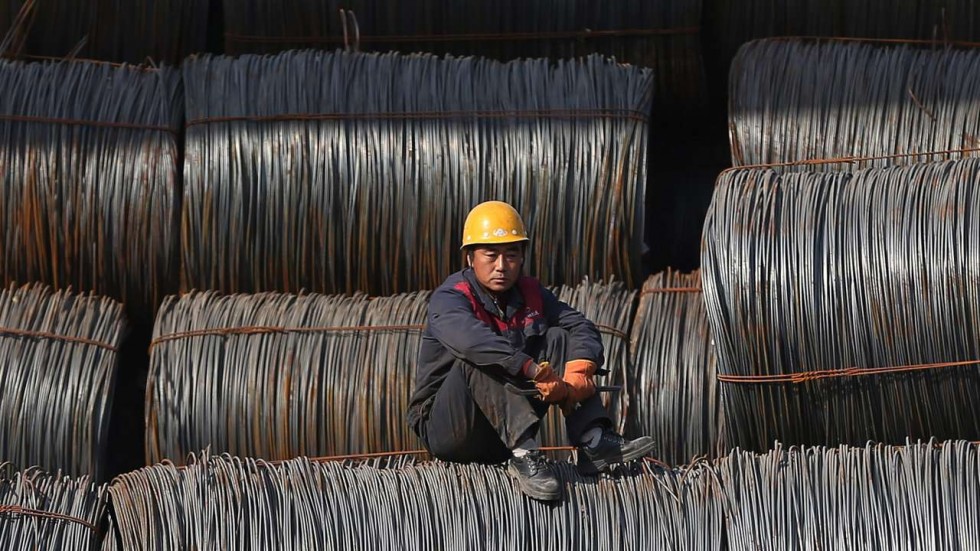President Trump recently initiated two separate investigations into whether the U.S. national security is threatened by artificially inflated global supplies of steel and aluminum, which he attributes to excessive Chinese production. Affirmative findings would give the president statutory authority to raise import barriers to protect domestic sources. But invoking national security to justify protectionism is an extreme measure—the “nuclear option” of international trade law—that would generate some undesirable consequences for U.S.-China relations, as well as for the rules-based trading system itself.

Since the founding of the General Agreement on Tariffs and Trade (GATT) in 1947, governments have acknowledged the perils of protectionism and the importance of reducing trade barriers to create sustainable conditions for economic growth. Yet, to this day, most governments remain unwilling to dispense with protectionism entirely. Under GATT and World Trade Organization (WTO) rules, governments are permitted to raise tariffs, conditionally, in response to things like “unfair” trade practices or unexpected import surges that injure or threaten to injure domestic industries, public health or safety concerns, or national security threats.
As compelling as the economic and moral arguments for free trade are, governments would never consider tariff reduction a higher priority than their obligations to protect national security. So, in 1947, a massive—but necessary—loophole was born with the GATT. Article XXI of the GATT is known as the “National Security Exception.” It permits members to impose trade restrictions for purposes of national security without obligating them to demonstrate that their rationale conforms with some agreed definition of national security or national security threats. The key to this loophole not being abused is recognition by all parties that prudence—not political expediency—must inform any government’s decision to invoke national security as its reason for raising trade barriers.
Legal scholar Roger Alford put it this way in a 2011 law review article:
The security exception is an anomaly, a unique provision in international trade law that grants the Member States freedom to avoid trade rules to protect national security. In the long history of GATT and the short history of the WTO, that freedom has never been challenged seriously. Member States understand the exception to be self-judging, and presume that it will be exercised with wisdom and in good faith. Thus far, the record has been impressive. While no doubt there have been departures, the self-judging security exception has worked reasonably well. It certainly has not undermined the effective functioning of the WTO (Emphasis added).
But that could very well change if the Trump administration determines that imported steel or aluminum presents a national security threat, and raises tariffs as a result. The argument that national security is threatened by an abundance of the very raw materials allegedly needed to protect national security is so flimsy that it would be an open invitation to every other WTO member to invoke national security to bestow protectionist favors on their own politically important domestic interests.
Of course, the protectionist argument is that the bounty of low-priced steel and aluminum would disappear once U.S. producers were run out of business, and foreign “adversaries” put the squeeze on U.S. buyers by withholding supply. In other words, products so important to U.S. national security—the argument goes—would not be supplied by non-adversarial foreign or domestic producers, even with supply shrinking and prices rising. That frequently invoked, threadbare, protectionist hypothetical has virtually zero likelihood of coming to pass. However, in the spirit of “we can never be too sure,” the U.S. government should take measures that could lead to the destruction of the trading system, the cost of which would present a real and significant national security threat.
Even if this U.S. action were formally challenged by another WTO member, the Dispute Settlement Body (if it came to adjudication) would accord great deference to the United States as to what it considers a national security threat. It is simply implausible that international trade jurists would seriously question a member government’s interpretation of a threat to its own national security. So, if the United States were to get away with such rogue protectionism through this loophole, it is highly likely that other governments would follow suit.
Since 2006, the United States and China have been engaged in a low-grade trade war over semiconductors and information and communications technology (ICT) products. The Chinese government has made it quite clear that it considers the attainment of technological preeminence one of its main economic objectives and that developing a self-sufficient, home-grown semiconductor industry through protectionist measures is the way to realize that goal. In various manifestations, China has been employing indigenous innovation policies for over a decade.
The United States has responded by essentially blocking China’s most successful ICT companies from participating in or supplying U.S. telecommunication infrastructure projects under the guise of cybersecurity policy. China has responded by implementing a set of new policies, including the National Security Law and the Cybersecurity Law, which essentially raise the costs for U.S. and other foreign technology companies to access China’s market. Meanwhile, over the past several months, U.S. policymakers have begun turning up the heat to make it more difficult for Chinese buyers to acquire U.S. technology companies and serious consideration is being given to the idea of making it easier for the U.S. Committee on Foreign Investment in the United States (CFIUS) to recommend that the president block such acquisitions.
If the United States invokes national security to raise tariffs on steel or aluminum, China would be less inhibited from declaring its dependency on foreign semiconductors a national security crisis and formally imposing tariffs. Likewise, India, which worries deeply about food security, might justify new restrictions on agricultural imports as a national security imperative. Pandora’s Box will have been opened wide, and the trading system will be burdened under the weight of the troubles that escaped.

